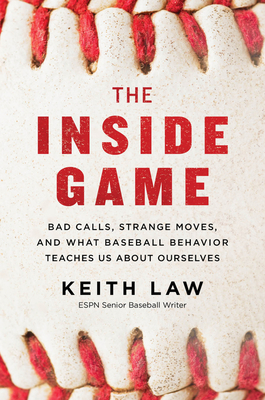What do you think?
Rate this book


304 pages, Hardcover
First published April 21, 2020
Identifying the questions you must ask and the data or evidence you will need is the first step in decision-making, and you can do that more effectively once you’re aware of the pitfalls posed by the cognitive biases and illusions I’ve cited in this book.Bob Feller is reported to have said “Baseball is only a game, a game of inches, and lots of luck.” There is plenty of truth in that. But with the technological advances we have seen in the last decade, it may be that baseball has become a game of microns and milliseconds.

We are prone to blame decision makers for good decisions that worked out badly and to give them too little credit for successful moves that appear obvious only after the fact.Fifty two Americans were taken hostage in Iran on November 4, 1979, after Iranian students took over the American embassy in Tehran. In April, 1980, President Carter ordered a rescue mission. The attempt failed, and Carter’s re-election prospects were irretrievably damaged as a result. There were plenty of other forces at play, including the GOP indulging in secret negotiations with Iran to encourage them to hang onto the captives until after the November 1980 elections, and the ABC show Nightline dedicating their nightly coverage to the “Hostage Crisis,” making sure to keep the issue at the top of everyone’s consciousness for the entirety of the election season. Whatever one may think of Jimmy Carter as president, it was a daring move to attempt a rescue. The failure was not his. It was in the implementation of Operation Eagle Claw. Yet, Carter took the blame for it, unfairly in my view. Results matter, but they are not all that matters. The unsuccessful resolution of the hostage crisis before the November 1980 elections doomed Carter, even though he made the best decision possible under impossible circumstance. He might have lost anyway, but the failure of the rescue mission made that loss a certainty.
Why do we cling to truths long after they’ve been disproven or lost their usefulness? Is it really just a matter of hearing something preached as true so frequently that our minds accept them not just as fact, but as the default perspective that must be actively dislodged by the jaws of life? Yes, as it turns out.In his examples, Law writes about batter protection in a lineup. (A batter will get a juicier selection of pitches to swing at if the batter following him is a more dangerous hitter.) Turns out there is no real statistical evidence to support the notion. Yet, through persistent repetition over time, by people who should know better, belief in lineup protection persists.
When a specific fact or example comes to mind more readily, we tend to overemphasize that fact or example—maybe we ascribe too much importance to it, or perhaps we extrapolate and assume that that example is representative of the whole. This phenomenon is called availability bias, and I think it’s one of the easiest biases to understand but one of the hardest to catch in yourself, because it’s not just natural, but easy. Your brain is just doing what you asked, right? You thought about some question, and your brain went right to the hard drive and pulled out something relevant. Your brain didn’t go to the archives, although, and it probably just gave you one thing when you actually needed the whole set.I believe Law dismisses a concern that should be obvious. For example, he regards the selection of the last place Cubs’ Andre Dawson for the 1987 MVP as a travesty, given that his numbers were bested by several players in the league. But that presumes that numbers are the only things worth considering in casting those ballots. Dawson, as Law notes, had taken on collusion by MLB ownership in their attempt to protect the notorious reserve clause. He offered the Cubs a contract with the salary left blank. He would play for any amount of money. It forced the Cubs’ owner’s hand, and helped advance the cause of possible free agency. His statistical value as a player may have been well below that of some other players, but his courage, and sheer value to the game was unparalleled. It was for this that he was likely rewarded by MVP voters. In this instance, Law contends that it was Dawson’s being in the news every day in coverage of the free agency issue that won him the award, the availability bias of frequent and recent repetition that moved voting Dawson’s way.